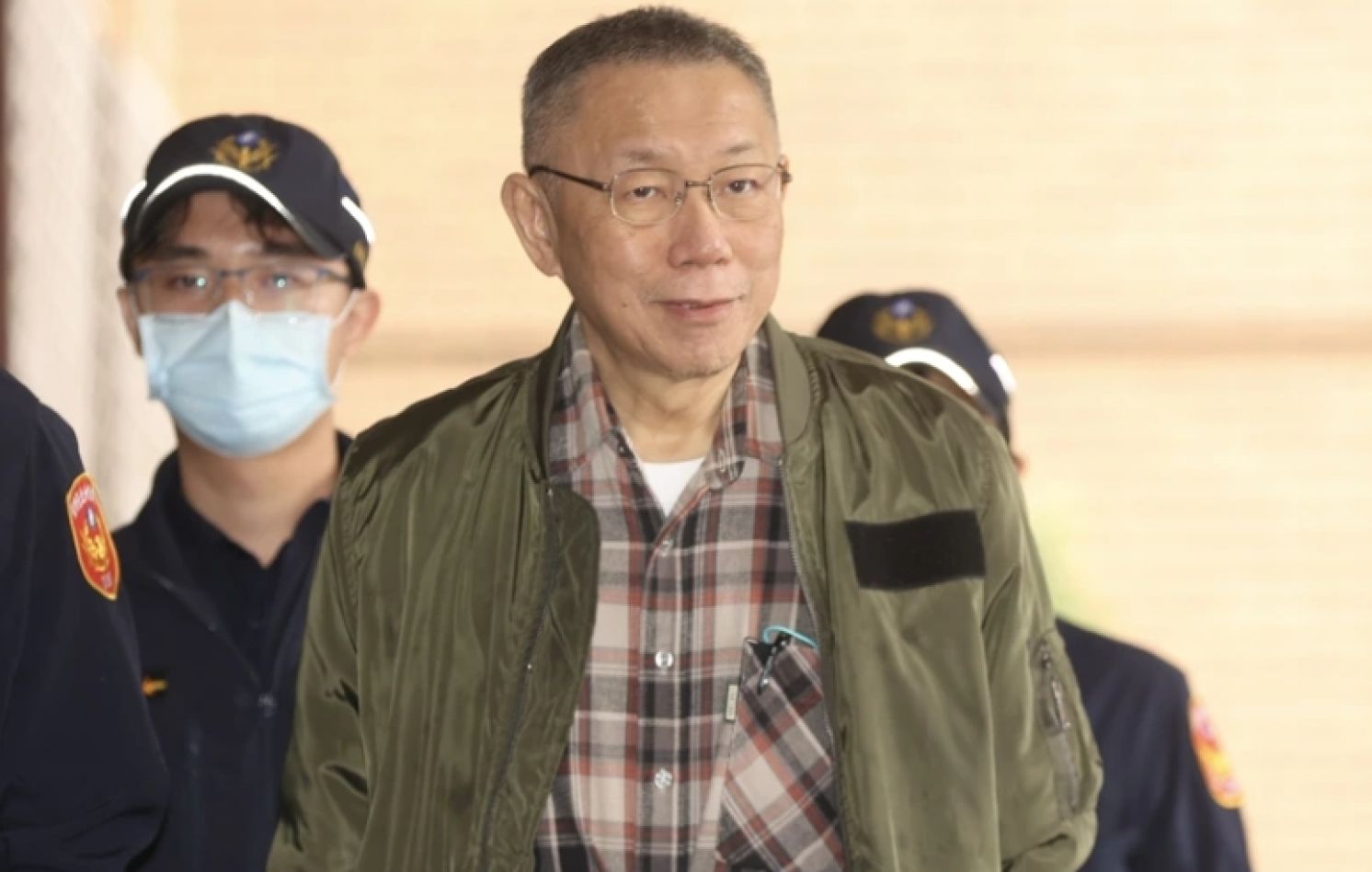
Ko Detained Again: KMT and DPP Seek to Attract Ko Supporters, Need Stronger Narratives
United Daily News Commentary, January 3, 2025
Ko Wen-je, former chairman of the Taiwan People's Party (TPP), and three others have been charged with corruption. On the evening of January 2, the Taipei District Court held its third detention hearing. The prosecution argued that Ko's influence was not diminished by resigning as party chairman, and with his secretary Hsu Tzu-yu, nicknamed "Orange," still at large, the risk of collusion remains. The court ruled late at night to detain Ko and three others. While he can appeal the detention ruling, Ko is likely to face repeated challenges in the future. After being released on bail, Ko resigned as party chairman, acknowledging his inability to lead the TPP effectively under the weight of ongoing legal battles. The future of his one-man party and the direction of its supporters, so-called "little grass,” are now in question, with both the Kuomintang (KMT) and Democratic Progressive Party (DPP) vying for their support.
The ruling DPP has openly used judicial measures to target Ko. Among centrist voters, opinions that "Ko is corrupt" and that "the DPP has interfered politically" are equally prevalent. This undermines the DPP's efforts to capture votes from the TPP's base. Convincing the "little grass" to side with the DPP is unlikely on both rational and emotional grounds. For the KMT, attracting the "little grass" requires not only highlighting the judicial persecution by the DPP but also presenting stronger narratives. The trajectory of Taiwan's third political force is not only the greatest variable in the political landscape but also critical to Taiwan's democratic development.
Ko was indicted in December on charges related to the Living Mall corruption case and political donations. The Taipei District Court's collegiate panel recently increased his bail to NT$70 million (about US$2.1 million) and implemented electronic monitoring with restrictions on residence, travel, and communication. The Taipei District Prosecutors Office's two prior detention requests were denied, leading the prosecution to file an appeal on New Year’s Eve. On January 1, the Taiwan High Court revoked the bail ruling and remanded the case for a new decision. The Taipei District Court held a hearing for Ko and three others, with the prosecution submitting a sixth request for detention, resulting in Ko's re-detention and isolation.
The DPP has effectively tied Ko down with judicial measures. Now, the focus of both the KMT and DPP is on the future direction of the "little grass." The rise of the TPP as a third political force originated from dissatisfaction with both the KMT and DPP, coalescing under Ko's banner of transcending traditional politics. Following the Living Mall corruption scandal, the extent of Ko's loyal base remains uncertain.
On January 1, the TPP held an expanded central committee meeting where Ko announced his resignation as party chairman. TPP whip Legislator Huang Kuo-chang assumed the role of acting chairman. Whether Chairman Huang can sustain the TPP and whether the party will shift from being Ko’s "one-man party" to Huang's remains uncertain. However, under the current circumstances, there seem to be no other viable options.
Following his resignation, Ko released a YouTube video via the TPP’s channel "Voice of the People" expressing his commitment to remain a lifelong TPP member and volunteer while urging supporters to continue backing the party and avoid a wave of withdrawals. The video sparked an influx of new memberships, with approximately 3,000 new members causing the party's website to crash. Huang expressed heartfelt gratitude, and Secretary-General Chou Yu-hsiu confirmed the surge in memberships.
However, as the TPP previously emphasized its soft-party approach without disclosing exact membership numbers, it is expected that some "little grass" will waver, making them targets for both the KMT and DPP.
The TPP will hold its central committee and review committee elections on January 19. Last December, the party elected a new batch of representatives from various counties and cities. These representatives have already formed alliances to maximize their influence in the upcoming elections. Amidst the current political turmoil, internal factions within the TPP are striving to maintain their foothold.
Meanwhile, the KMT and DPP remain entangled, particularly after their collaboration to pass three key laws. The DPP is now attempting to overturn these laws through a motion for reconsideration, signaling further back-and-forth political battles. Such developments are likely to deepen the disillusionment of voters already weary of politics. With the third political force in disarray, Taiwan's political landscape seems poised for continued turbulence.